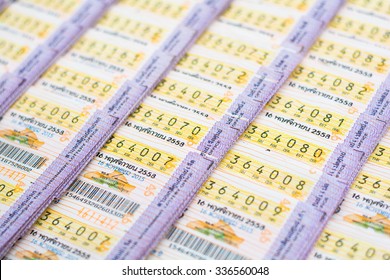
Buying a lottery ticket may seem like a simple and safe way to win big money. Unfortunately, it also requires a download, and frequent updates. These take up space on your device and can annoy you. Plus, you can’t use your lottery app from your desktop - it’s only available on mobile devices. But what do these drawbacks mean for you? Here’s a quick overview. Here’s what you should look for when purchasing a lottery ticket.
As a form of gambling, lottery games have a rich history. The earliest recorded lotteries were conducted in the Low Countries. They were intended to raise funds for poor people and for the town’s fortifications. The Dutch regarded lotteries as a relatively painless taxation method and were quick to adopt this system. The oldest continuously-running lottery, called the Staatsloterij, was introduced in 1726, and its tickets are still in use today. The English word lottery derives from the Dutch noun “lot” or “fate”.
Gamblers fall into the gambler’s fallacy when they believe that random events can be influenced by factors that are out of their control. The lottery tax is 5% of sales, and 8% is allocated to charity and sponsorships. These taxes are an estimated 13% of total revenue. These taxes are collected through two bases, fixed taxes on slot machines and casinos and a fixed tax on the GGR (gross gaming revenue). After subtracting winnings from gambling, the player’s money becomes the GGR. If a player matches two numbers, they win less than $10.
Lottery games originated in ancient China, and are recorded in documents from the Han Dynasty dating from 205 BC. These games helped finance important government projects, such as the Great Wall of China. They were also widely distributed during the Roman Empire, and were often played for entertainment at dinner parties. Emperor Augustus even organized a lottery during his reign, whose proceeds were used for repairs to the city. These early lotteries have been incorporated into our modern lottery game, and the technology is similar to the one we use today.
While there are no federal lotteries in the US, some states have state-wide lottery games. Washington, DC, Puerto Rico, and the US Virgin Islands all have state-wide lottery games. Only Alaska, Hawaii, and Nevada do not have state-run lotteries, so they are considered de-facto national lottery games. You can find a state lottery near you by searching for “Powerball” in the local newspaper or online. And if you win the lottery, you can be sure that you’ll be receiving your winnings sooner or later.
While the price of a lottery ticket may be higher than the value you expect to gain, the thrill of winning money is worth it. People are drawn to the thrills and the fantasy of becoming rich. But if the prize you win is less than your expected value, you shouldn’t buy a lottery ticket. If you’re looking to maximize your utility, don’t spend your hard earned money. But if you’re not planning on becoming rich, lottery tickets are a great way to win big.